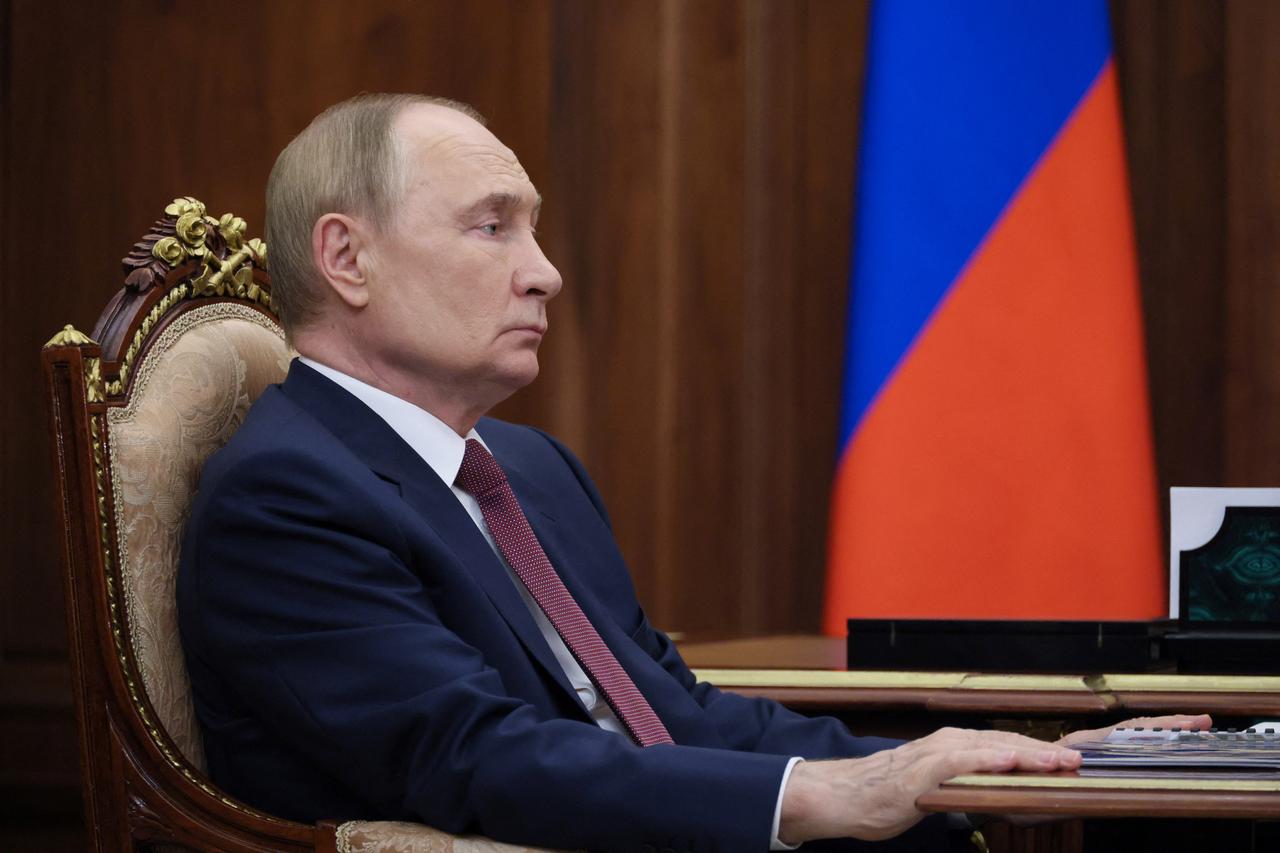
Russia will not accept NATO troops serving as peacekeeping forces in Ukraine or provide security guarantees of that nature, Russian Deputy Security Council Chairman Dmitriy Medvedev said Wednesday, as Ukraine intensifies coordination with European and NATO allies on concrete military security commitments.
Medvedev made the statement on the social media platform X, responding to French President Emmanuel Macron's continued consideration of sending troops to Ukraine.
"No to NATO troops as peacekeeping forces. Russia will not accept such security guarantees," Medvedev said.
The Russian official compared Macron to a "Gallic rooster," adding, "But the poor bird with a muted voice continues to crow to prove it is the king of the coop." Medvedev noted that Macron has not abandoned his idea of sending troops to Ukraine, which Russia clearly opposes.
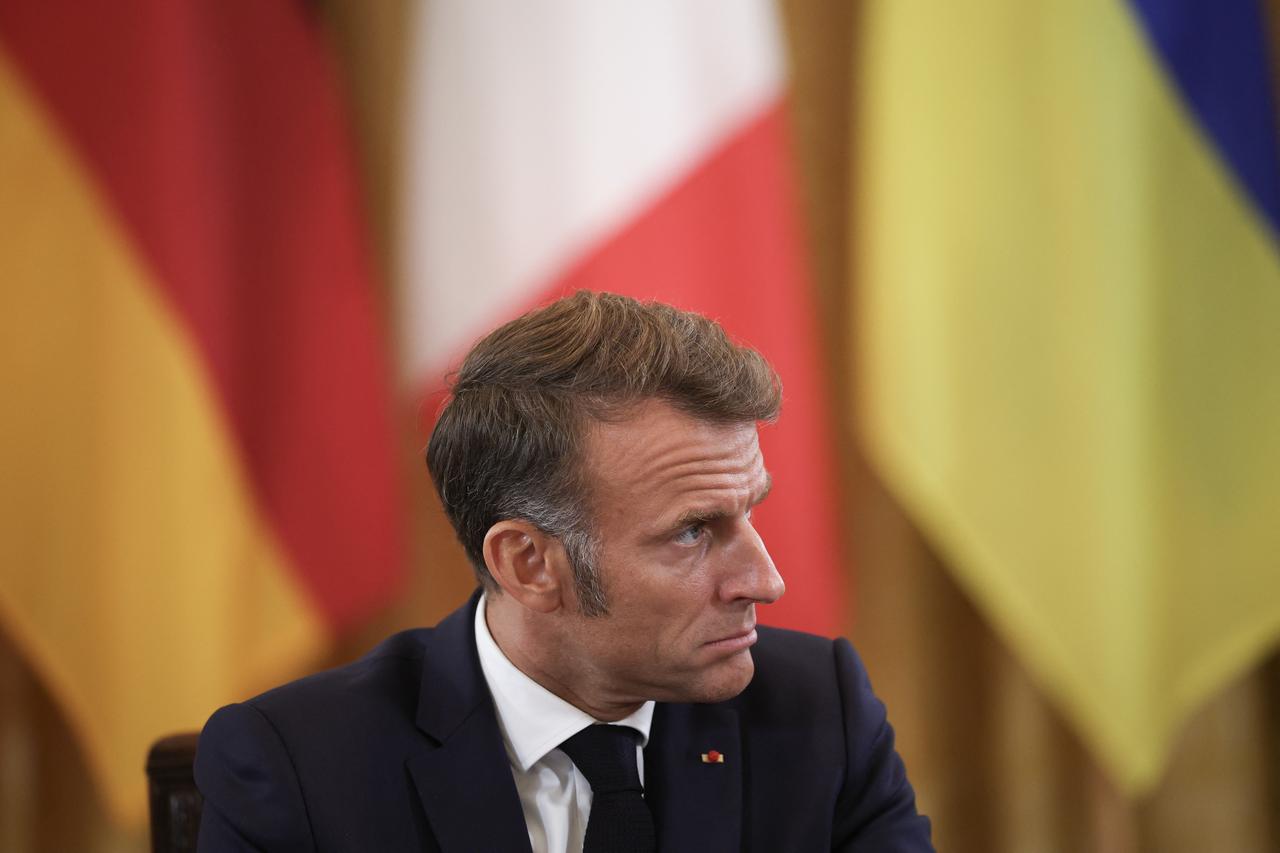
Ukraine announced it has begun daily coordination with European and NATO countries' national security advisors to advance concrete military security guarantees and prevent future attacks.
Andriy Yermak, head of Ukraine's Presidential Office, said he held his first extended coordination meeting with national security advisors from Germany, Italy, France, Britain, Finland, and representatives from the European Union and NATO immediately upon returning from Washington.
"Everything must be quite concrete and effective to prevent repetition of attacks," Yermak said, referencing the 1994 Budapest Memorandum and emphasizing that Ukraine and its allies must not repeat past mistakes.
NATO chief Mark Rutte confirmed that a group of 30 countries, led by Britain and France and including Japan and Australia, is drafting a framework for long-term security commitments to Ukraine.
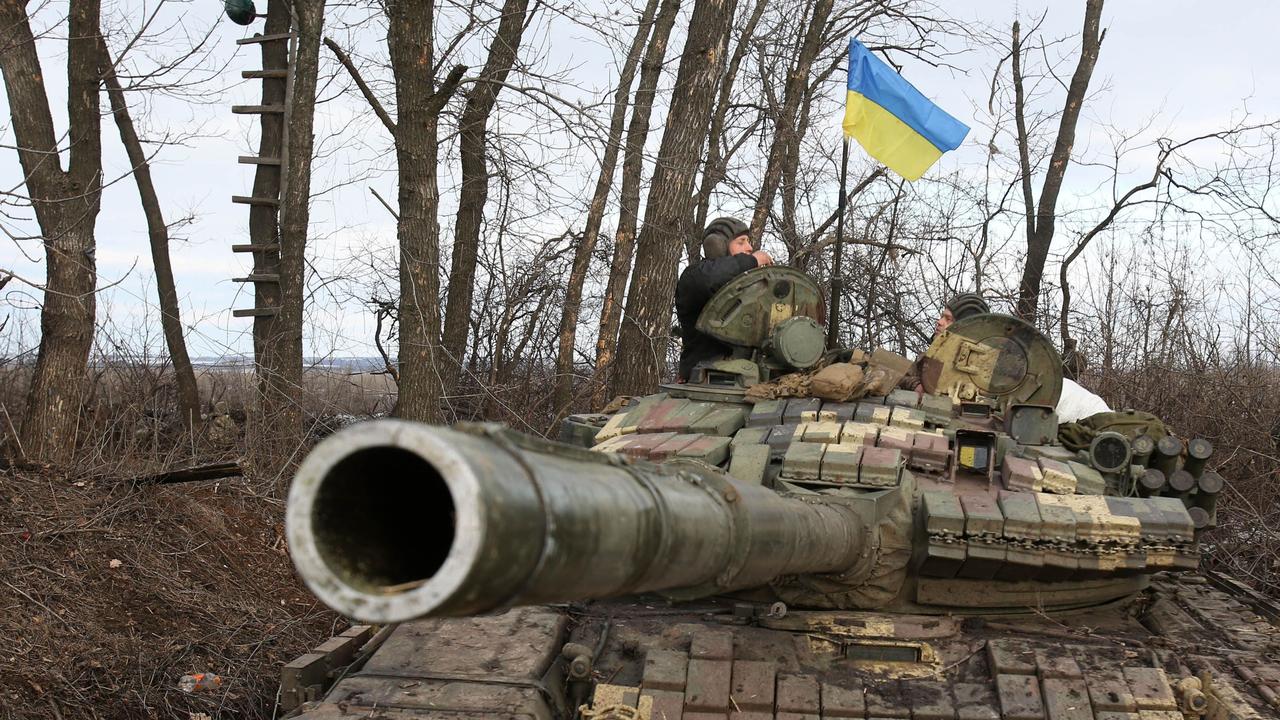
Experts speaking to state-run Anadolu Agency (AA) suggest several models for Ukraine's security guarantees could emerge. Timothy Ash, associate fellow in the Russia and Eurasia program at Chatham House, proposed an "Israel model" under which Ukraine would receive guaranteed access to Western military hardware.
"In the end, Ukraine is left to defend itself, but there's an assurance from the Americans and the rest of NATO that they will provide Ukraine with whatever conventional military capability to defend itself," Ash explained. He believes Ukraine is likely to secure access to the full spectrum of Western weapons, including F-16 and F-35 fighter jets.
Daria Malling, policy advisor on Ukraine at the Center for Liberal Modernity in Berlin, emphasized that "the most important security guarantee is strong military support to the Ukrainian army and tightening sanctions."
However, analysts warn of risks with peacekeeping deployments. "There are question marks whether other Western allies are willing to put boots on the ground, are they willing to fight Russian troops in that scenario, and would the US be willing to back them in that scenario where they would have to engage Russian troops?" Ash said.
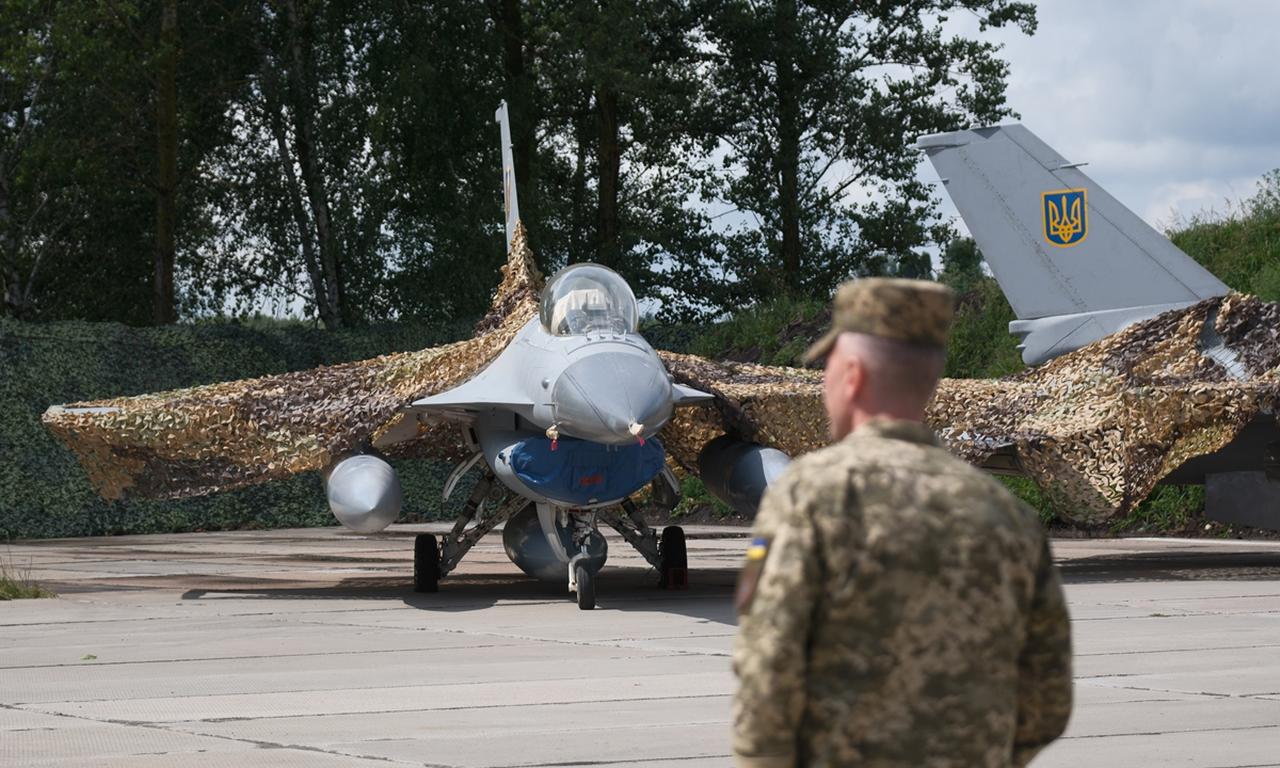
Air defense initiatives represent another key area under discussion. "Air defense would be a very interesting initiative that might be very efficient—a sky shield for Ukraine or at least for parts of Ukraine territories, and it can be actually implemented right now, even," Malling said.
Maximilian Hess, an associate Russia and Eurasia fellow at the International Institute for Strategic Studies, noted that European allies are pushing Trump to support some form of permanent security presence.
"What Trump has spoken about is something where Europeans are closer to the front lines, and then the U.S. is behind that, whether that comes in the form of EU troops on the ground in certain areas or U.K. troops as well," he said.
However, Ash cautioned about European capabilities without U.S. support. "Many European countries—Italy, France, the U.K., Germany—have significant air capability, but their ability to provide intelligence, logistics, supply of munitions to provide air coverage is limited without the Americans," he said.
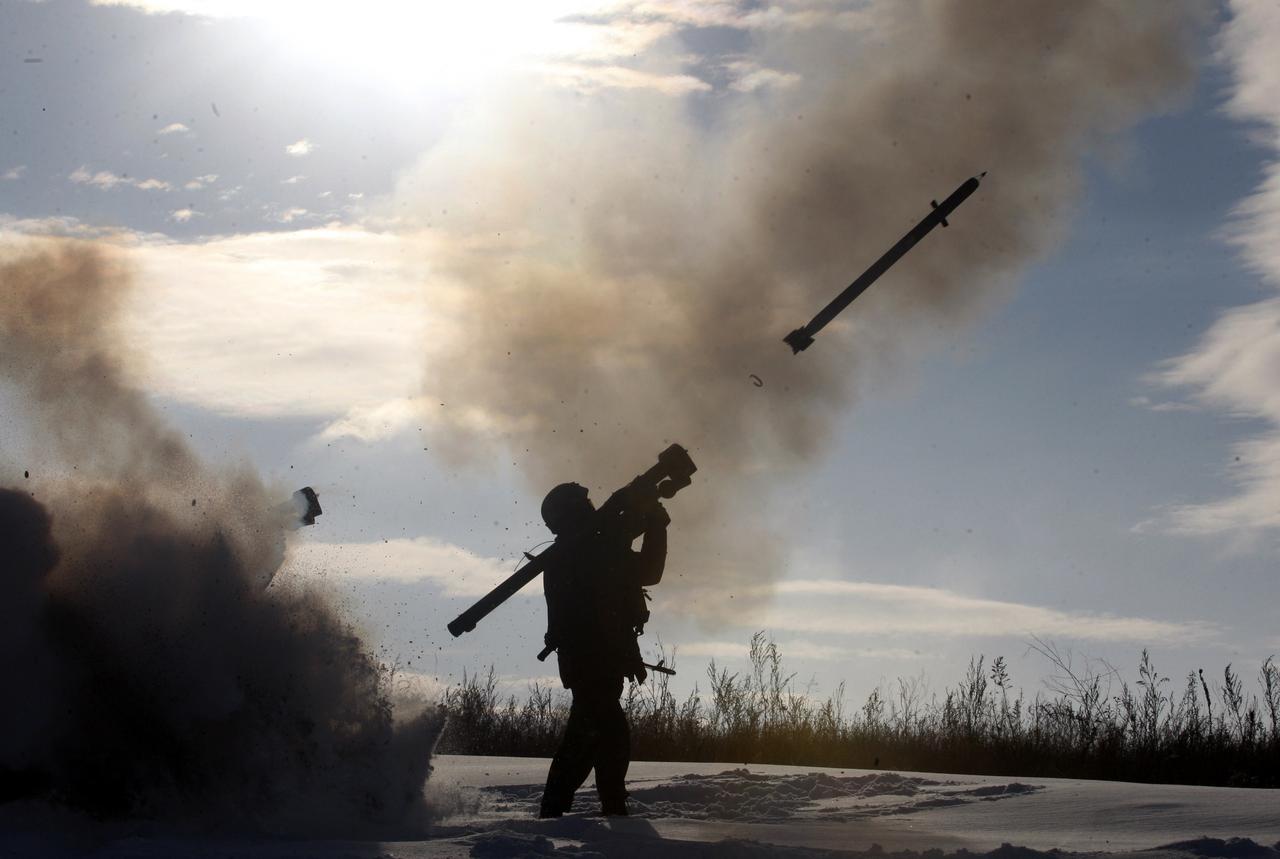
Analysts also recalled Ukraine's history with failed security assurances. Malling questioned the real value of Article 5-like guarantees, noting that "contrary to popular belief, Article 5 does not oblige NATO member states to automatically intervene in a conflict." She warned that declarative guarantees risk repeating the failed Budapest Memorandum of 1994.
Kim pointed to 2014, when Russia illegally annexed Crimea despite the Budapest Memorandum having "several leading countries as guarantors of Ukraine's security in exchange for Ukraine giving up its nuclear weapons." He said, "Ukraine saw that these guarantees, or as the Americans called them assurances, were worth nothing because Russia marched in."
Malling emphasized that "this way of providing Ukraine with such guarantees can be helpful, but as long as they remain just declarative, that won't have any real meaning. A real NATO membership has no alternative."
Hess added that Moscow would almost certainly reject peacekeeping plans, noting that "the first thing is that we won't see any peacekeeping force in place until an agreement has been reached, and there is no guarantee that an agreement still will be reached."